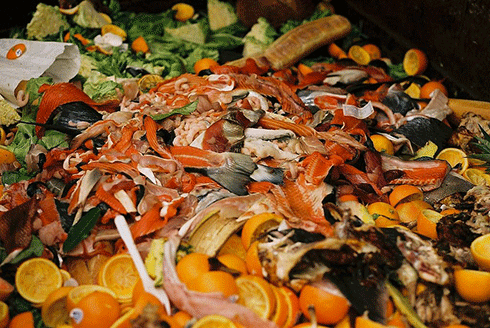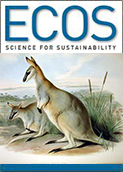
|
Published: 3 June 2014
Making it easier to Think.Eat.Save
A new global guide designed to help prevent food waste is now available for use by governments, local authorities, businesses and households around the world.

|
|
Almost half of all fruit and vegetables produced each year end up as waste. Credit:
Taz CC
|
The guide was recently released by the United Nations Environment Programme (UNEP) and the Food and Agriculture Organization of the United Nation (FAO) as part of their joint 'Think.Eat.Save' campaign aimed at encouraging action to stop food waste.
UNEP points to research showing that at least one-third, or 1.3 billion tonnes, of food produced each year is lost or wasted – an amount corresponding to over 1.4 billion hectares of cropland. Even a quarter of this lost food could feed the entire world's hungry people. Included in that waste is almost half of all fruit and vegetables produced globally each year.
And it’s not just a matter of food security. About 10 per cent of developed countries' greenhouse gas emissions come from growing food that is never eaten, and food loss and waste amounts to roughly US$680 billion in industrialised countries and US$310 billion in developing countries.
‘Food waste carries direct economic and environmental costs and depletes the natural resource base that underpins food production,’ says UNEP Executive Director, Achim Steiner.
‘Today, diets are becoming more resource-intensive, and the way we buy and consume food is changing due to industrialisation, the demands of a growing middle class, and the continued impacts of the economic crisis.
‘This first-of-its-kind guidance document on food waste prevention provides the technical expertise and impetus needed for a wide range of actors to take advantage of existing wisdom, catalyse action, and get a head start in tackling this critical issue.’
The Think.Eat.Save food waste reduction guide begins by showing users how to map and measure food waste and develop national or regional policies and measures. Four in-depth modules then focus on programmes for food waste prevention in households and in the food supply chain.
The guide provides comprehensive steps on scoping, planning, delivering and measuring food waste prevention programmes at the national, regional, business and household levels.
UNEP says it is built on proven experiences from countries around the world, including that of the United Kingdom, where avoidable household food waste has been reduced by 21 per cent between 2007 and 2012.
UNEP and FAO are recruiting pilot countries and cities without existing frameworks for food waste prevention to test the guide. Technical and strategic support will be provided to pilot countries and cities.
Source: UNEP



